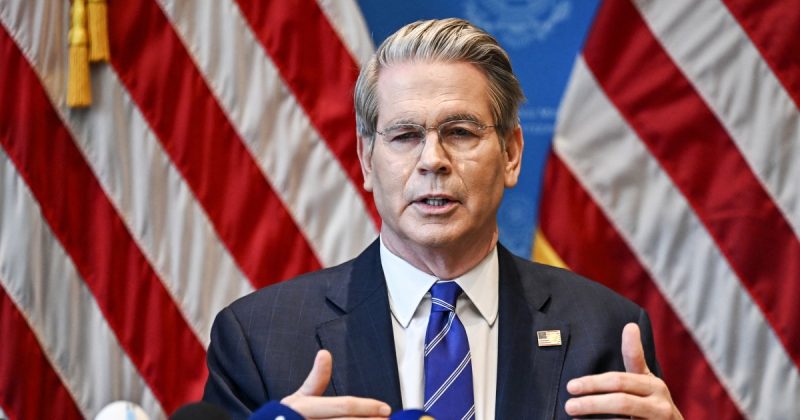
Treasury Secretary Scott Bessent recently dismissed Moody’s downgrade of the U.S. credit rating, calling it a ‘lagging indicator’ on NBC’s ‘Meet the Press.’ He attributed the downgrade to the Biden administration’s spending policies over the past four years, arguing that the current economic situation isn’t a result of recent actions. Bessent pointed to the country’s steadily increasing national debt, which has been growing since the 1980s and continued under both Trump and Biden administrations. The $36.22 trillion national debt, according to the Treasury Department, is a key factor cited by Moody’s in their decision.
He also revealed a phone conversation with Walmart CEO Doug McMillon, where McMillon reportedly stated that Walmart would absorb some of the costs associated with Trump’s tariffs, echoing similar actions taken in previous years. Bessent denied applying any pressure on Walmart, emphasizing their pre-existing strong relationship. This echoes a previous statement from Walmart’s CFO, John David Rainey, who, while expressing concern about potential price increases for consumers due to tariffs, confirmed Walmart’s willingness to absorb some of the increased costs.
This stance contrasts sharply with President Trump’s public demand that Walmart ‘eat the tariffs,’ a statement met with a measured response from Walmart emphasizing their commitment to keeping prices low, but acknowledging the challenges posed by tight retail margins. Bessent’s justification for the call was to hear directly from McMillon, rather than relying on secondhand information from the press.
Bessent’s comments extended beyond the Moody’s downgrade and tariffs to address the controversy surrounding the acceptance of a luxury jet from Qatar as a potential replacement for Air Force One. He characterized questions about the $400 million gift as a distraction from the significant investment commitments secured during Trump’s recent Middle East trip, arguing that countries like Qatar, Saudi Arabia, and the UAE are unfazed by the credit downgrade and continue to invest heavily in the US economy.
However, Senator Chris Murphy (D-Conn.) strongly criticized Bessent’s dismissal of the Moody’s downgrade, highlighting the potential implications for the economy, including a possible recession and increased interest rates impacting businesses and homebuyers. Murphy asserted that the current administration is prioritizing the interests of the wealthy elite over the overall economic well-being of the nation. This highlights the significant political divide surrounding the economic implications of the credit downgrade and the administration’s policies.










